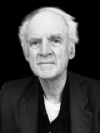Foreign Rights
- // New titles
- // Fiction
- // Non-fiction
- // Youth
It is only recently that a societal model based on the respect of a
plurality of philosophical, religious, and moral perspectives has emerged as
the most likely to lead to a harmonious and productive balance between society
and its constituent members. A vast consensus has also emerged around the
notion that secularism is an essential component of any liberal democracy. But
what exactly is a secular society?
While recent works in social science, law, and philosophy have made great strides in explaining secularism as a mode of governance, there had been little analysis to date of the constitutive principles of secularism – until the publication of this book.
The authors argue that the two ultimate objectives of secularism are the respect of individuals’ moral equality and the protection of the freedom of conscience and religion. For this reason, secularism must now be grasped within a larger context of the diversity of beliefs and values – religious or other – held by all members of society.
In their book, Maclure and Taylor reflect on the fundamental principles that permit social cooperation within profoundly diverse societies, the application of such principles to the operation of institutions, and the notion of a citizen ethic.
While recent works in social science, law, and philosophy have made great strides in explaining secularism as a mode of governance, there had been little analysis to date of the constitutive principles of secularism – until the publication of this book.
The authors argue that the two ultimate objectives of secularism are the respect of individuals’ moral equality and the protection of the freedom of conscience and religion. For this reason, secularism must now be grasped within a larger context of the diversity of beliefs and values – religious or other – held by all members of society.
In their book, Maclure and Taylor reflect on the fundamental principles that permit social cooperation within profoundly diverse societies, the application of such principles to the operation of institutions, and the notion of a citizen ethic.
Autres informations
22.95 $
Ce que la presse en dit
« Un livre très intéressant que je vous conseille pour poursuivre le débat. » Isabelle Maréchal - 98,5 FM
Les Éditions du Boréal
3970, rue Saint-Ambroise, Montréal (Québec), Canada H4C 2C7
Tél: (514) 287-7401 Téléc: (514) 287-7664
Tél: (514) 287-7401 Téléc: (514) 287-7664
Les photos des auteurs ne peuvent être reproduites sans l'autorisation des Éditions du Boréal.






